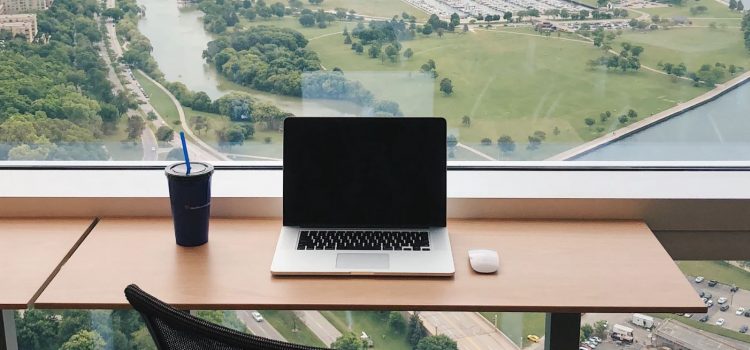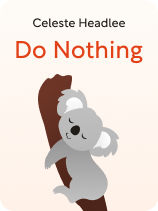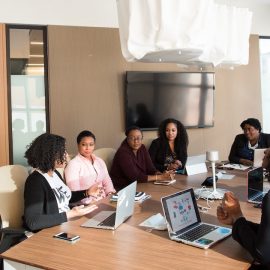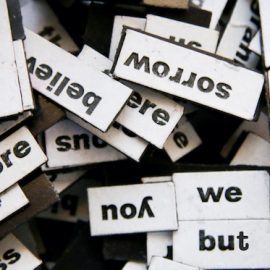

This article is an excerpt from the Shortform book guide to "Do Nothing" by Celeste Headlee. Shortform has the world's best summaries and analyses of books you should be reading.
Like this article? Sign up for a free trial here.
Do you use the Pomodoro technique when you work? Is quiet quitting for you? Does collaboration help or hurt productivity?
Celeste Headlee wants to help you rebel against the productivity culture and get your life back. She urges you to free up time by doing more focused work, stop working more than you need to, work with a group when you can, and create a dream schedule that includes leisure time.
Read more to learn about these four healthy work habits that can change your professional and personal life for the better.
Healthy Work Habits
Headlee decided to write Do Nothing after struggling with work burnout, despite gaining financial stability and self-employment. By sharing her experience and research on this topic, she hopes to help others like herself end an unhealthful addiction to productivity. Let’s look at four healthy work habits that she encourages you to adopt.
#1: Do More in Less Time
Her first piece of advice is to do more focused work so that you can work fewer hours while getting the same amount done. If you have flexibility in your schedule, she recommends working for about 50 minutes at a time, followed by a short break to recharge.
(Shortform note: Headlee’s advice to work in 50-minute sessions with short breaks in between is similar to the Pomodoro technique of working in blocks of 25-minute focused work sessions followed by a five-minute break, and then taking a longer 15- to 30-minute break after four of those cycles. In addition to working in shorter, more focused bursts, research suggests that you can work more efficiently by setting short deadlines for specific tasks. In Scarcity, Mullainathan and Sendhil explain that this is because we naturally work more effectively as a deadline looms. Thus, the combination of short deadlines and shorter working sessions could significantly reduce the amount of time you spend on a project or task.)
#2: Don’t Work More Than You Need To
Headlee also recommends not working any more than your job requires, since the accompanying stress and exhaustion from being overworked isn’t worth the career-related benefits you may or may not get from it.
(Shortform note: Headlee’s advice to stop working optional hours is sometimes referred to as “quiet quitting”—a practice that many younger workers have adopted of reclaiming their time by not doing anything non-essential for work. Proponents of quiet quitting argue that it’s crucial for people to develop their sense of identity and self-worth outside of work. Some argue that the Covid-19 pandemic reinforced this principle as work became less social and less enjoyable for remote workers. A 2022 study suggests that about 50% of workers are quiet quitting, although others argue that this number isn’t much different from the last couple of decades.)
#3: Work With a Group
Another work-related tip is to work in groups when you can. Headlee says that although many people feel that working independently is more efficient, research suggests that diverse groups are more efficient at problem-solving and making optimal decisions compared to individuals. Thus, collaborating with others can save you time and produce better results.
(Shortform note: Headlee doesn’t specify what kind of diversity to strive for in your work groups, but some experts assert that cognitive diversity, in particular, facilitates efficient problem-solving. For example, it’s better to have a mix of people who prefer to synthesize the ideas of others and people who like to generate new ideas, rather than people who approach tasks in the same way.)
#4: Create a Dream Schedule That Includes Leisure Time
Lastly, create your dream schedule and include ample leisure time. Headlee says your dream schedule doesn’t have to be strictly followed, but writing it down will give you something to strive for. Remember to include leisure activities—anything that’s purely for enjoyment like going for a walk, reading outside, doing a craft, or playing music.
(Shortform note: If you’re not sure where to start with your leisurely dream schedule, in The Happiness Project, Gretchen Rubin offers advice for how to discover new opportunities for leisure. First, try keeping a log, where you record things that pique your interest—locations on a map to visit or new activities you’d like to try, for example. Second, peruse random magazines or listen to a new podcast to expose yourself to new topics that might inspire a hobby or pastime.)
Having these periods of rest is essential because it improves mental health and activates a state of mind known as the default mode network (DMN). The DMN activates when your brain isn’t working on a task, and in this state, we naturally process emotions and decisions, reflect on memories, think about how others feel, and daydream about the future. Headlee says that the DMN sparks creativity and growth since our brain is free to consider things from new angles.
(Shortform note: Similar to Headlee’s argument here, Chris Bailey’s Hyperfocus espouses the benefits of what he refers to as “intentional mind wandering.” He clarifies that in order to maximize these benefits—like creative ideas or plans about the future that this mental state inspires—it’s best to jot down any insights that occur to you so you can access them later. Otherwise, you may not remember the brilliant ideas you conjured while in the DMN.)

———End of Preview———
Like what you just read? Read the rest of the world's best book summary and analysis of Celeste Headlee's "Do Nothing" at Shortform.
Here's what you'll find in our full Do Nothing summary:
- How our fast-paced world is causing us to work less efficiently
- How the culture of overworking has led to social isolation and poor health
- How to embrace true leisure to live a happier and healthier life






